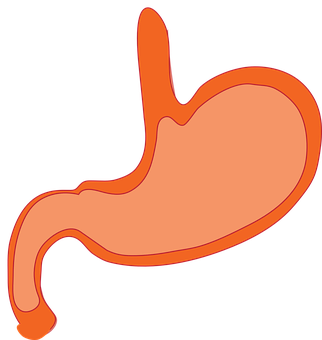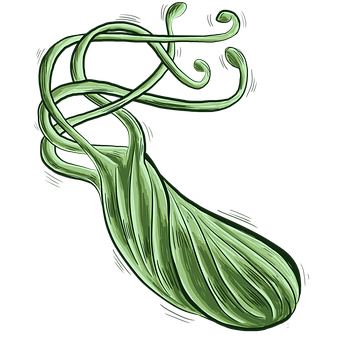ULCER
An ulcer is an open sore on an external or internal surface of the body caused by a break in the skin, tissue or mucous membrane causing irritation, inflammation, lesion and pain.
The most common type is known as peptic ulcer.
A peptic ulcer is a sore that occurs in the protective lining in the stomach (gastric ulcer), in the upper part of the small intestine (duodenal ulcer) or in esophagus (esophageal ulcer).


• The linings consist of epithelial cells that produce the mucous substance and bicarbonates that coats the inside of the stomach and prevent the stomach(gastric) acid from attacking or damaging the walls of the stomach.
• The gastric acid majorly consisting of concentrated hydrochloric acid with pH ranging between 1 and 3 that helps in the breakdown and digestion of food in the stomach.
This acid with its concentration is strong enough to eat up a wood or even melt metals such as razors
Most stomach ulcers are caused by an infection with a type of bacteria called Helicobacter pylori.

Helicobacter pylori are gram negative bacteria that thrive best in areas with less acid concentration.
They avoid the acidic environment (chemotaxis) by using their flagella to burrow into the protective lining to reach the epithelial cells beneath the protective linings where it is less acidic.
They also neutralize the acid in their environment by producing urease in excess which breaks down the urea in the stomach into carbon dioxide and ammonia which reacts to neutralize the acid in its environment. The carbon dioxide and ammonia is toxic to the epithelial cells.
The burrowing in the mucous lining and the action of carbon dioxide and ammonia on the epithelial cells eventually leads to ulcer or make a way for the action of the gastric acid on the protective lining to lead to ulcer.
The excessive use of pain killer, excessive intake of alcohol, smoking or chewing tobacco, hypercalcemia (abnormal high level of calcium in the body) increases the risk of being infected with ulcer.
How to know if you are infected with ulcer
When symptoms occur, they may include:
• A stinging or burning pain in the middle or upper stomach between meals or at night
• Vomiting
In severe cases, symptoms can include:
• Dark or black stool (due to bleeding)
• Vomiting blood
• Weight loss
• Severe pain in the mid to upper abdomen that may last for minutes or
Care of ulcer
• Avoid substances or situations that may increase the effect of ulcer such as the aforementioned.
• Using antibiotics to kill the bacteria
• Using antacids (anti acid) that will help to neutralize the acid and reduce its activeness.
• Avoid taking beverage with caffeine, tea, orange and grape fruit juices, spicy foods, seasonings, whole milk and chocolates, foods rich in fat.
References:
http://www.healthline.com/health/stomach-ulcer#Prevention7
https://en.m.wikipedia.org/wiki/Helicobacter_pylori
http://www.mayoclinic.org/diseases-conditions/peptic-ulcer/multimedia/ulcers/img-20008060
http://www.webmd.com/digestive-disorders/understanding-ulcers-basic-information
image source @ pixabay
I’m a Microbiology undergraduate at the University and I’m fascinated with learning amazing stuff about life everyday.
Steemit is rekindling my love for research and writing and I will be sharing with you amazing stuff I discover everyday at school and over the course of my search for knowledge.
It's a great article to try to prevent ulcer.
I had stomach ulcer a few years ago, and it really hurts. I remember that I had to go into a hospital for 3 days because I started vomiting blood. But in this case it was a severe ulcer.
Downvoting a post can decrease pending rewards and make it less visible. Common reasons:
Submit
Thanks.
I was once unfortunate to witness the episode. Its really scary to watch someone growling in pain in the middle of the night. Its like feeling the pain without having it.
Downvoting a post can decrease pending rewards and make it less visible. Common reasons:
Submit